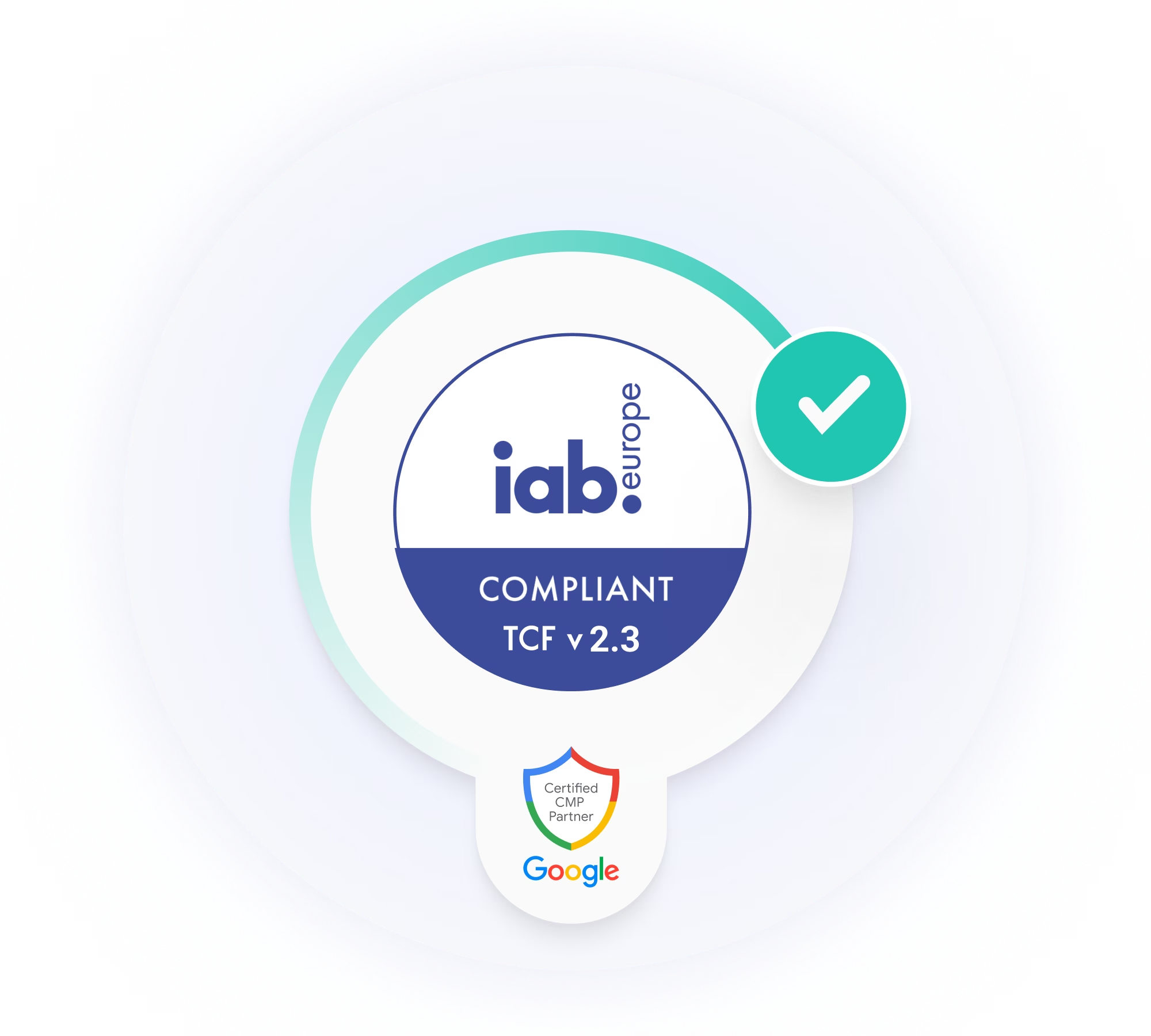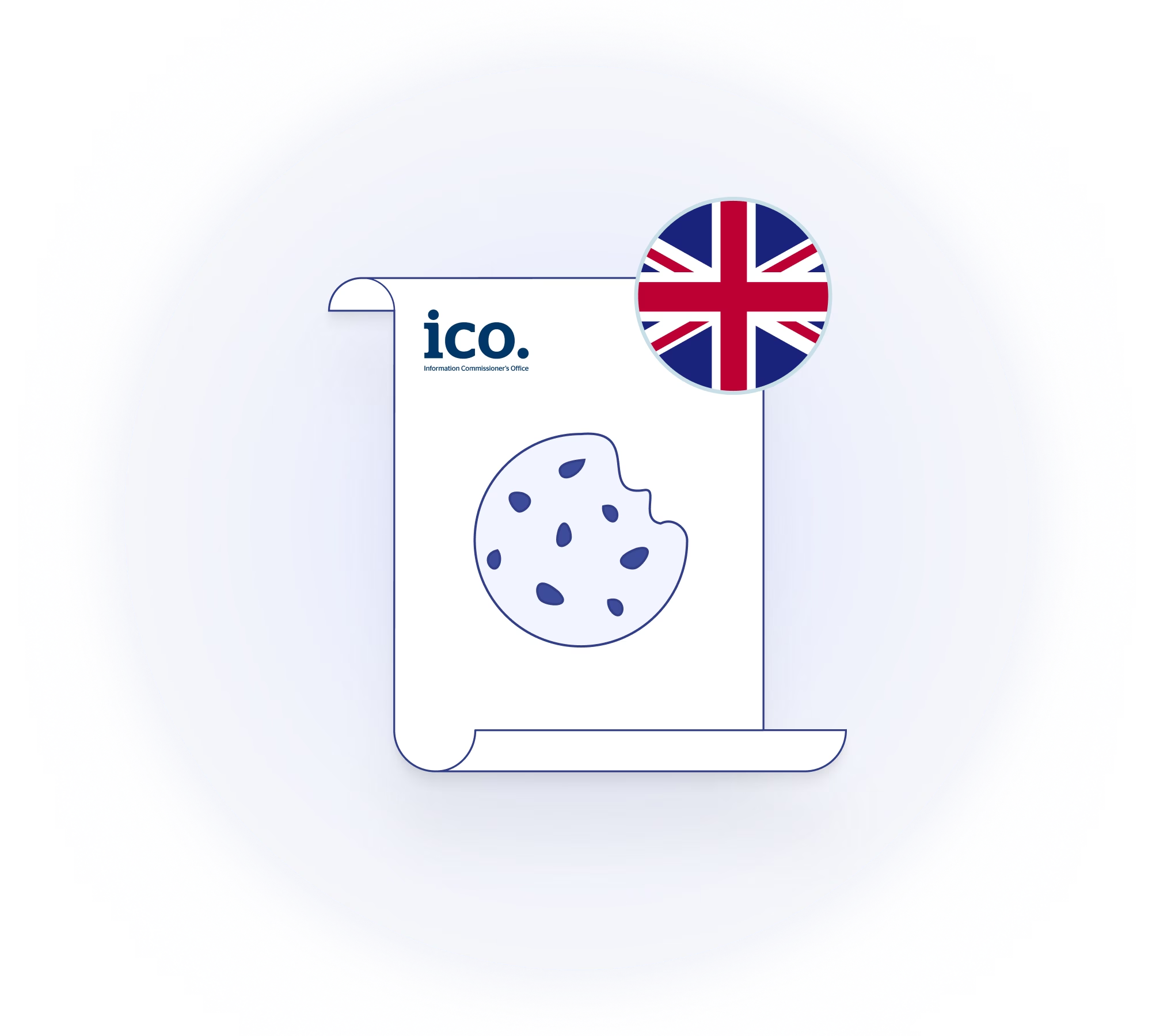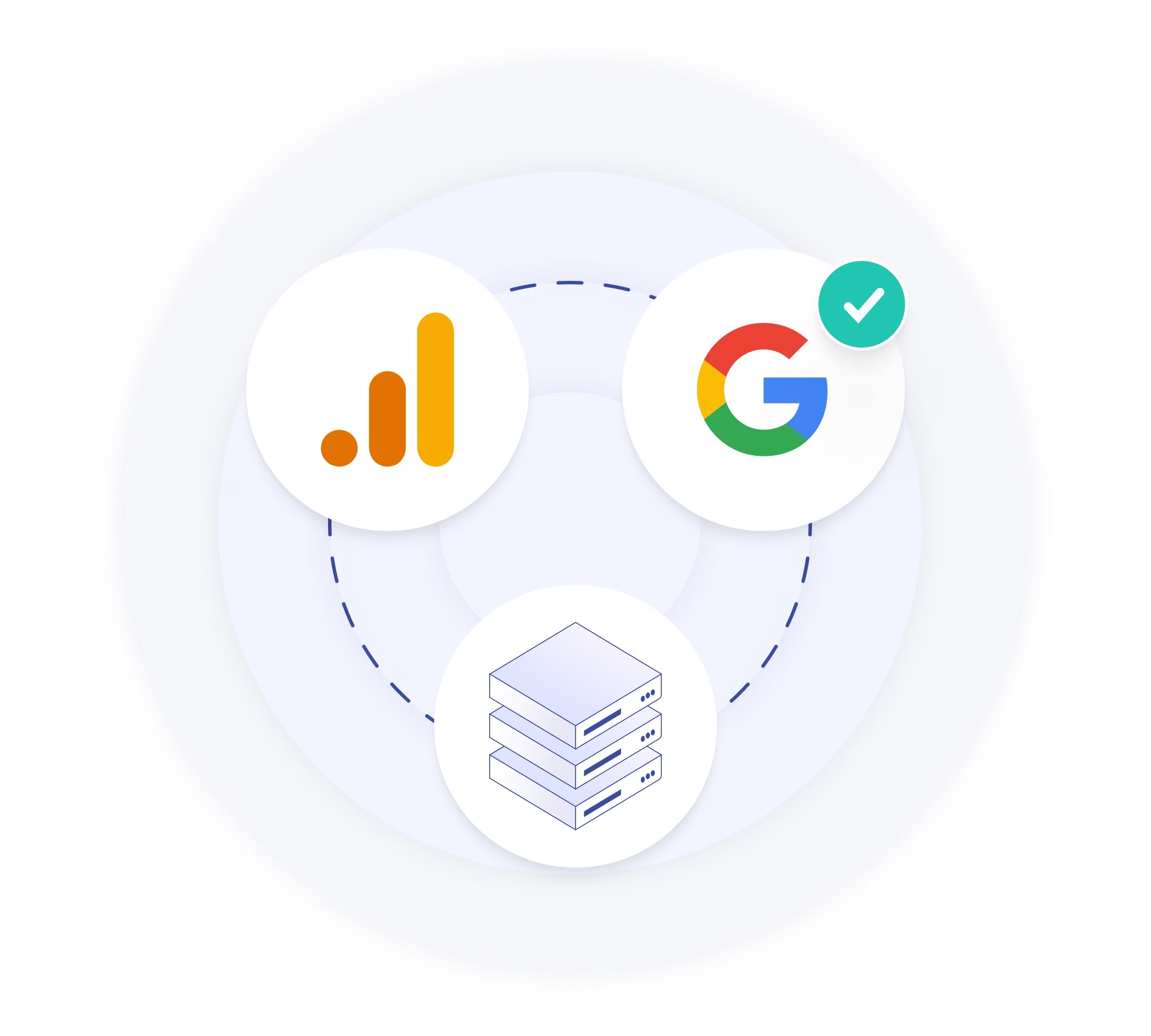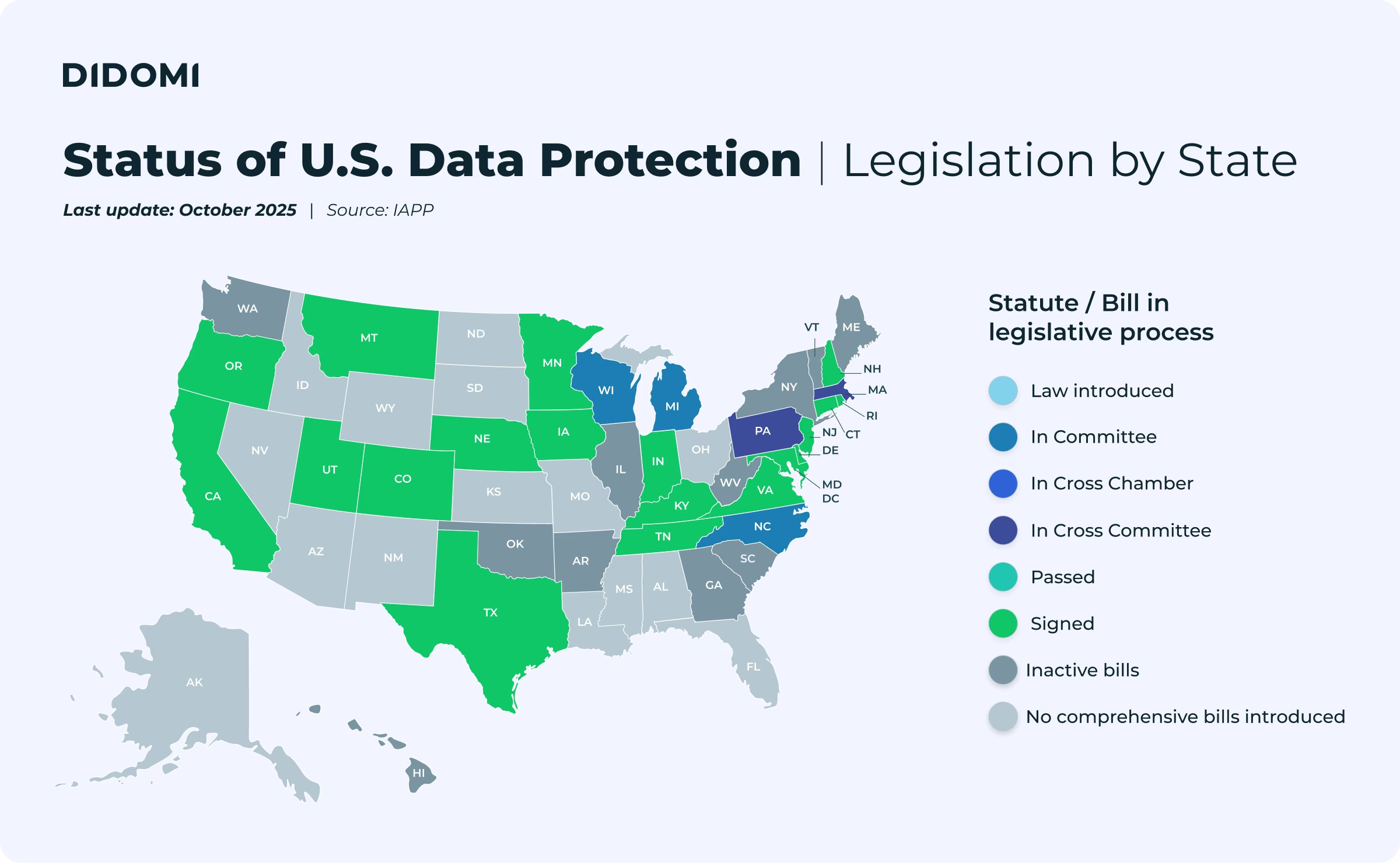More than technological tools, mobile apps are an extension of each mobile phone user and an indispensable convenience for most consumers.
From handling personal finances and shopping to gaming and dating, we all rely on mobile apps in our everyday lives. Consequently, most businesses leverage mobile app features, such as one-click ordering, in-app purchases, and appointment scheduling, to provide a personalized experience and increase sales.
But offering mobile apps with features such as push notifications and personalized services also comes with legal compliance risks: When your mobile app collects users' name and email address, analyze their in-app behaviour, or handle their health data, it must comply with applicable data protection laws and regulations, such as the EU’s GDPR, California’s CCPA, HIPAA for healthcare apps, and COPPA for children’s data.
As a mobile app publisher or developer, you will be responsible for ensuring that your data collection, sharing, and processing activities and data security measures adhere to the applicable laws and regulations. Achieving legal compliance will minimize your risk of facing regulatory action and hefty fines. Additionally, respecting your users’ privacy choices and ensuring the ongoing security of personal data will help you earn their trust and establish a reputation as a privacy- and security-conscious business.
Curious to learn more? Keep reading.
Why achieving compliance is essential for mobile app publishers and developers in 2025
When offering app users various features and functionalities through your mobile app, such as online payments, personalized services, or push notifications, organizations collect and process various types of data, including mobile device identifiers, geolocation data, in-app user behavior, and potentially sensitive data such as health information or data concerning race or ethnicity.
As a consequence, they must ensure that they comply with applicable privacy laws and obtain informed, legally compliant user consent.
Let's take a look at some of the substantial and measurable benefits resulting from mobile app compliance.
Eliminating the risk of hefty regulatory fines
First and foremost, the effort of achieving legal compliance for your mobile application can help you avoid harsh monetary fines that may amount to millions of euros/dollars under the applicable laws.
If your mobile application is available to US consumers, achieving legal compliance would be of paramount importance to eliminate the risks of regulatory action. For example, if your mobile app’s collection of California residents' data violates California’s CCPA, you may face fines of up to $7,988 for each violation.
Similarly, if your mobile application is offered to EU users, European Union authorities may impose fines of up to 20 million euros per violation or 4% of your annual global turnover. To illustrate, the Irish Data Protection Commission fined TikTok €530 million for transferring app users’ data to China in violation of the EU GDPR rules. In another prominent case, the Norwegian Regulator imposed a fine of around 6 million euros on a mobile app for unlawfully sharing app users’ data with third-party advertisers for behavioral advertising purposes without valid consent.

Another important factor to consider is the growing scrutiny on mobile apps by EU regulators. The French Regulator’s (CNIL) recent Guidance on Mobile Apps demonstrates that EU regulators are giving greater attention to mobile apps’ compliance with the EU GDPR.
Complying with laws besides privacy laws
While the EU’s GDPR and the other major privacy laws are most relevant, your mobile apps may also be subject to other laws, depending on the types of data you collect and process.
For instance, if your app processes protected health data, such as medical records or insurance details, you may be subject to the Health Insurance Portability and Accountability Act (HIPAA) in the United States. This law requires mobile apps to obtain specific consent and imposes data security obligations.
Likewise, if your mobile app is targeted at children under 13, you may be subject to the US Children's Online Privacy Protection Act, which requires you to obtain verifiable parental consent and make certain disclosures in your privacy policy.
Bringing your mobile app into compliance with these specific laws will protect you from facing legal liability and regulatory action.
Building consumer trust and increasing sales
Although often overlooked, the branding benefits of your compliance efforts are also critical. If you can ensure the privacy and confidentiality of app users’ data, you will be able to earn your customers’ trust and increase their engagement. Finding from our Privacy Made Positive report showed that on average, 80% of consumers pay attention to privacy before making a purchase.
By investing in sound privacy practices, complying with privacy laws by obtaining your app users’ informed consent, providing them with a transparent privacy notice, and ensuring data security, your users will be more likely to trust you and continue using your mobile app. This may, in turn, boost your revenue.
Encouraging more users to give their consent
Not surprinsingly, complying with privacy laws when collecting, using, and sharing app users’ data may encourage your users to give consent to the use of their data for analytics and personalized advertising purposes. That same Privacy Made Positive report quoted earlier found that 70% of respondents were more likely to accept cookies and marketing emails when provided with clear information about the cookies you are dropping and the data you gather.
This effectively create a virtuous circle. If your consent flows comply with applicable privacy laws, this may encourage your app users to share more data with you, enabling you in turn to utilize the shared data to improve your mobile app experience and marketing campaigns.
6 key compliance requirements for mobile app publishers and developers
If you want to avoid regulatory action, respect privacy laws and earn your users’ trust, start with these 6 steps towards compliance:
1) Obtain valid user consent
If your mobile app collects data, such as users’ in-app behavior, their location data, and uses this data for analytics, targeted advertising, or profiling purposes, you may need to obtain prior consent from your users, depending on the applicable laws.
For example, the EU and UK GDPR require that you obtain prior consent before activating SDKs and cookies to collect users’ device data and in-app behaviour for analytics and marketing purposes. Similarly, you may also need prior consent under the US federal laws, such as HIPAA and COPPA.
Implementing a legally-compliant consent management flow is the first step to consider. If you don't know where to start, we put together a list of the best Consent Management Platforms for you to consider:
{{top-ten-best-cmp}}
2) Create a user-friendly privacy policy
All global privacy laws, from the GDPR to California’s CCPA and Australia's privacy law, require mobile apps to provide a transparent privacy policy (also called privacy notice) to app users. This privacy policy should explain the types of data you collect, how you use it, with whom you share it, and how users can exercise their rights.
In addition, your privacy policy should be concise, intelligible, and easy to navigate for mobile app users. Get the full rundown in our article on what is a privacy policy and how to create one.
3) Implement an opt-out mechanism
If you have users in the USA, state-level privacy laws may require you to provide users with a mechanism to opt out of the sharing of their personal data for targeted advertising purposes or the sale of their data.
4) Provide a mechanism to exercise their rights
The majority of global privacy laws provide data subjects with various rights, including the right to access their data, the right to deletion, the right to object to data processing, and the right to withdraw consent.
To illustrate, the French Regulator CNIL’s Guidance on mobile apps recommends that apps provide app users with a ‘rights management center’ so that they can exercise their privacy rights effectively.
Consider implementing a DSAR (Data Subject Access Rights) management solution to allow users to exercice their rights and streamline your efforts ot manage incoming requests:
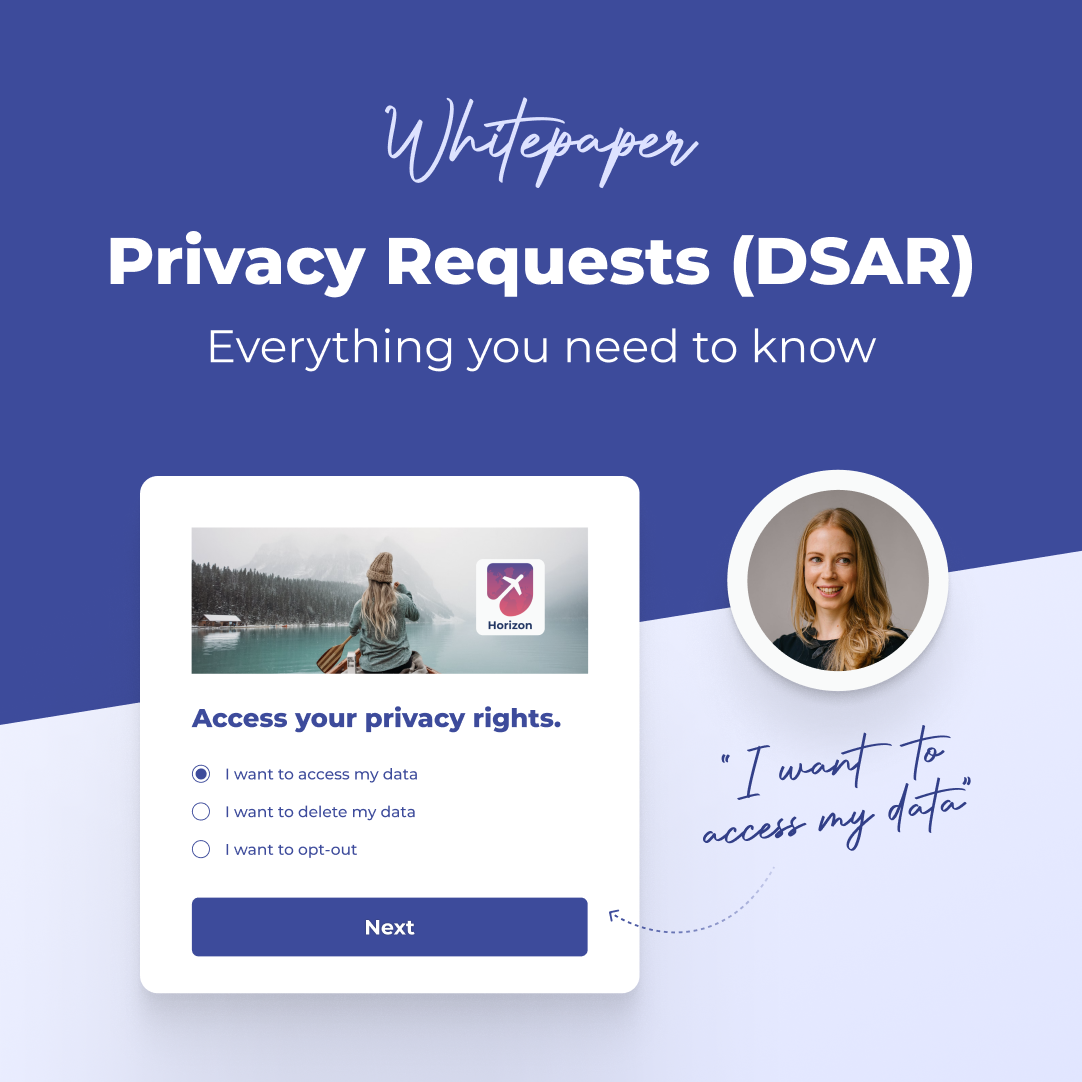
5) Ensure and maintain data security
A data security breach may not only result in regulatory fines, but also erode your customers’ trust. Therefore, you must establish and implement appropriate technical, organizational, and contractual data security measures.
- You may consider enforcing tecnichal measures such as strong password requirements, multi-factor authentication, and using encryption both at rest and in transit to help prevent data breaches.
- You must also enter into data processing agreements with your SDK providers and mobile app developers to ensure that they adhere to your specified data security standards and agree to notify you of data breaches as soon as possible.
Lastly, and although applicable laws typically do not mandate strict rules, the French regulator CNIL recommends that mobile app publishers and developers use the OWASP Mobile Application Security Testing Guide (MASTG) to assess the security of their mobile apps.
6) Audit your SDK provider
If you use third-party SDK tools such as AWS's cloud hosting service, Stripe payment processor, or the Firebase analytics, you need to audit such SDK tools to ensure that their data collection and use activities do not violate data protection laws or relevant regulations and that they protect user data. This includes verifying whether they use the collected data for their own purposes, such as training artificial intelligence models.
To ensure compliance, you need to regularly carry out mobile app testing to understand the data collected and used by your SDK tools and verify if your SDK tools comply with privacy requirements under the data privacy regulations.
In practice, data exchanges often take place between these different entities, with sometimes poorly defined sharing of responsibility. In particular, the use of SDKs processing personal data in a non-compliant manner and the non-compliant use of mobile identifiers have already been the subject of formal notices or penalties on the part of the CNIL.
- CNIL, Recommendation on mobile application (source: CNIL)
Cheat sheet: Recommendations from the French DPA (CNIL) for mobile app compliance

How to get started with mobile app compliance
Comprehensive mobile app compliance begins with identifying the applicable data privacy laws and regulations for you and organizations, and ensuring you have a clear picture of the data practices in place within your organization.
We can help with that.
Our Consent Management Platform (CMP), along with the rest of our solutions, can help you implement sound privacy practices that will not only protect you from regulatory consequences, but most importantly ensure that you provide great privacy-first experience with your uses. To learn more, check out our CMP for mobile app and book a time withone of our experts to discuss:
{{cmp-for-mobile-apps}}
Frequently Asked Questions(FAQ)
Will complying with App Stores' requirements be enough for data protection compliance?
No, compliance with mandatory data privacy laws and compliance with the mobile application store providers' requirements are not related to each other, and they are completely distinct requirements.
As an example, the Apple App Store requires mobile application developers/publishers to obtain consent to collect mobile identifiers. Yet, implementing Apple's consent banner would not be sufficient to make your mobile application compliant with the EU and UK's stricter GDPR requirements.
Are mobile application publishers/developers responsible for the SDK providers' tools?
Yes, mobile application publishers/developers will bear the primary legal liability under the applicable data protection laws for how their SDK providers handle user data.
Nonetheless, if the SDK providers use personal data collected for their purposes, such as product improvement, they might be classed as 'data controllers' and be held liable. In any case, it is important to enter into a data processing agreement with your SDK providers to address the roles and liabilities of the parties and to protect users' data privacy to minimize risk.

.svg)











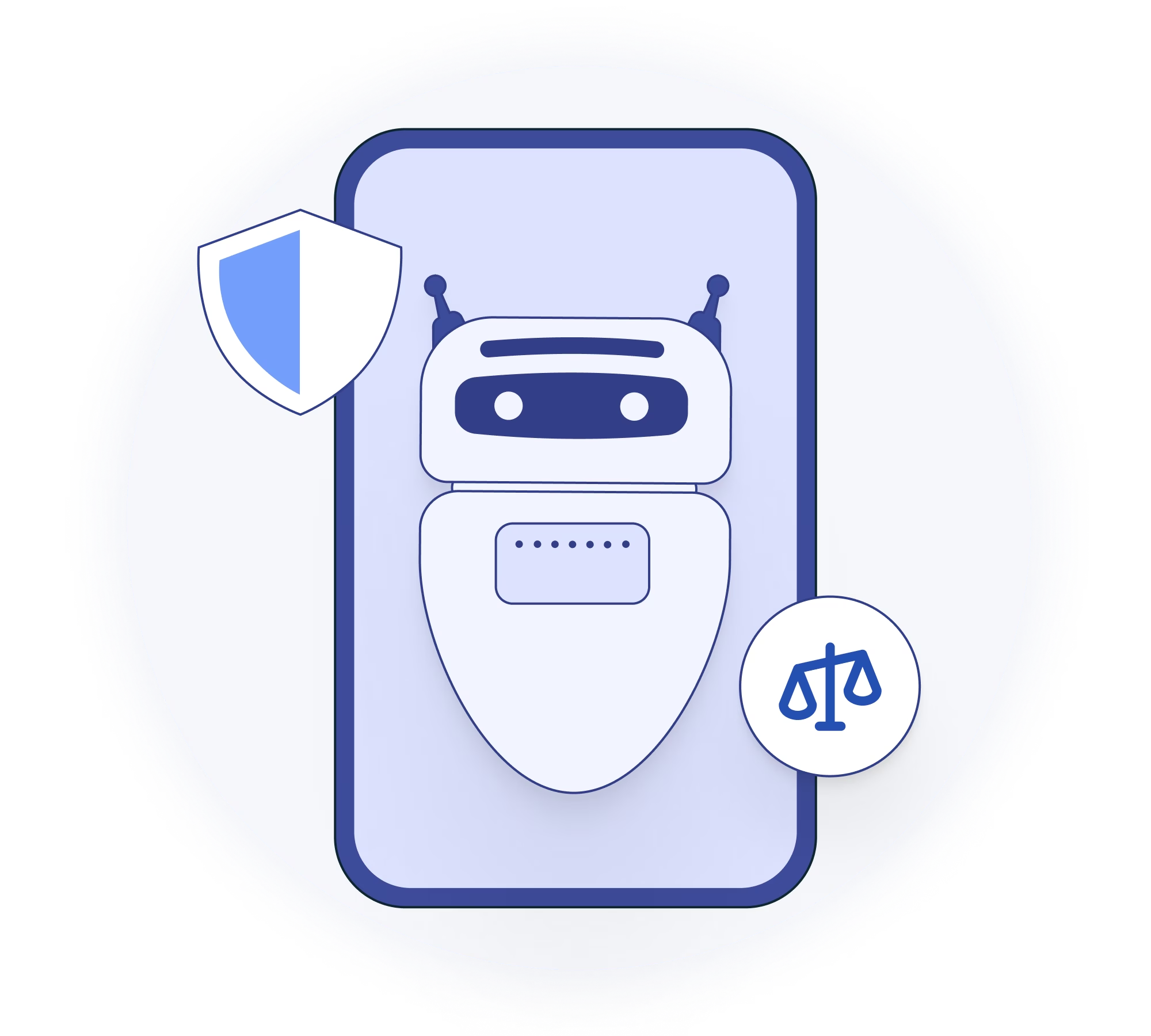
.png)
